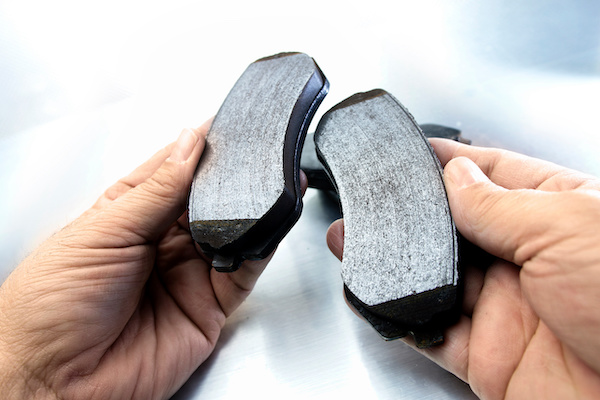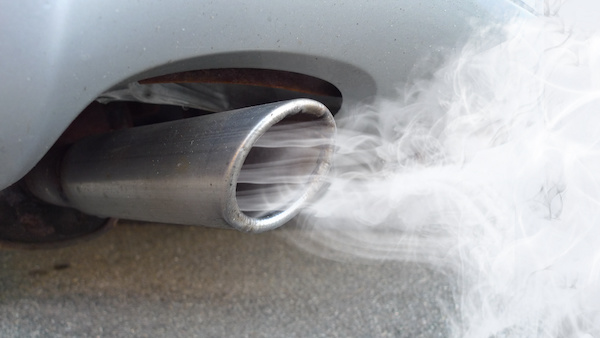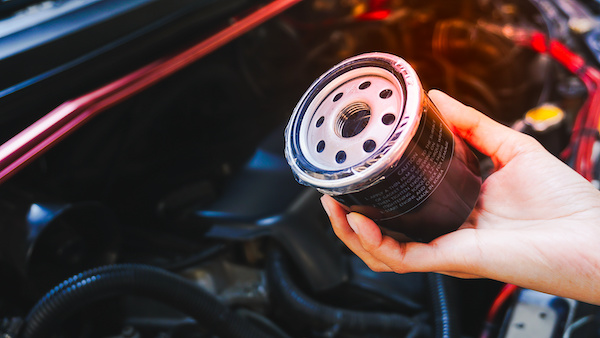Posted on 7/30/2023

The check engine light in your car is a warning sign that something is wrong. Unfortunately, many drivers ignore the light until it is too late. Whenever you see the check engine light come on, check your car immediately. These are the top reasons your check engine light is on: Gas Cap If you refilled your car and did not properly put back the gas cap, your check engine light will go on immediately. Driving without a properly sealed gas cap is extremely dangerous. The check engine light comes on because when you properly close the gas cap and tighten it, there is a vacuum created. If the cap is loose, broken, or cracked, the check engine light will come on automatically. You can close the gas cap if it is loose. If it is broken or cracked, replace it as soon as possible. Catalytic Converter The catalytic converter is one of the most essential parts of your engine, and your car cannot run without it. If your catalytic converter is damaged, the check engine light will turn on immed ... read more
Posted on 6/30/2023

Brake pads are vital, integral parts of your vehicle. You need them every day because they provide proper friction to slow down your car. That's why you must choose the right pads for the ultimate convenience. Your choice will depend on the materials used, sourcing reliability, and when you need to replace them. This post highlights the different types of brake pads to aid in decision-making. Semi Metallic Semi metallic brake pads are one of the most popular options because of their optimal performance. Metal is the highest part of their composition and often includes other materials such as copper, steel, and graphite lubricant. They are the ideal choices for the best returns on investment because they are more durable and long-lasting. Ceramic Brake Pads Ceramic brake pads are an advanced element of the automotive industry. They are costlier than other brake pads but more convenient. They feature high durability, stability, and quieter braking. Besides, they are wear-resistan ... read more
Posted on 5/12/2023

Smoke emitting from your exhaust is often the first sign that something is wrong with your vehicle. While the type of smoke you’re seeing can give you hints as to what’s wrong, the color of the smoke can tell you which components of your car are failing. Here is a quick guide to different smoke colors and their meaning: White Smoke: White exhaust comes from excessive fuel in the combustion chamber of your engine. It is usually a result of worn valve seals, piston rings, or damaged fuel injectors. It could also be due to a cracked or faulty intake manifold gasket. Blue Smoke: Blue exhaust smoke results from burning oil, and it’s often a sign that something is wrong with the valvetrain. The oil may leak from worn piston rings, valve seals, or worn valve guide seals. Gray Smoke: Gray smoke appears when the engine mistakenly burns the transmission fluid. This happens when the transmission leaks fluid or a seal has beco ... read more
Posted on 4/27/2023

With spring finally, here, most people will find themselves doing their spring cleaning. Tidying your house is a nice place to start, but keeping your vehicle clean is just as important. A clean car is not only a matter of looks but also a way to maintain its value and performance. But do you know the right way to wash your car? Here are some do's and don'ts of car washing that can help you keep your vehicle's appearance pristine. Do's of Car Washing: Use the right tools: Choose soft, non-abrasive materials such as microfiber towels, wash mitts, and sponges to avoid scratching or damaging the car's surface. Also, use a pH-balanced motorcar shampoo to ensure the paint is not stripped of its protective wax. Clean the wheels and tires first: Before washing the car, clean the wheels and tires with a specialized cleaner and brush to remove brake dust, dirt, and grime. Rinse thoroughly: Use a hose or pressure washer to rinse off any loose dirt and debris before washin ... read more
Posted on 3/31/2023

Regular oil changes are critical to keeping your car's engine running smoothly, but did you know that changing your oil filter is just as important? The oil filter plays a necessary role in protecting your engine and keeping it running efficiently. Here are some reasons why it's important to change your oil filter regularly: Remove Contaminants from Your Oil The oil filter's primary job is to separate the contaminants from the oil as it circulates through the engine. Over time, these contaminants can build up and cause damage to your engine, leading to costly repairs. Regularly changing your oil filter ensures that it does its job properly and keeps your engine clean. Improve Engine Performance A dirty or clogged oil filter can lead to reduced engine performance. As contaminants build up in the oil, it becomes less effective at lubricating the engine's moving parts, increasing wear and tear. A clogged filter can cause your engine to ... read more